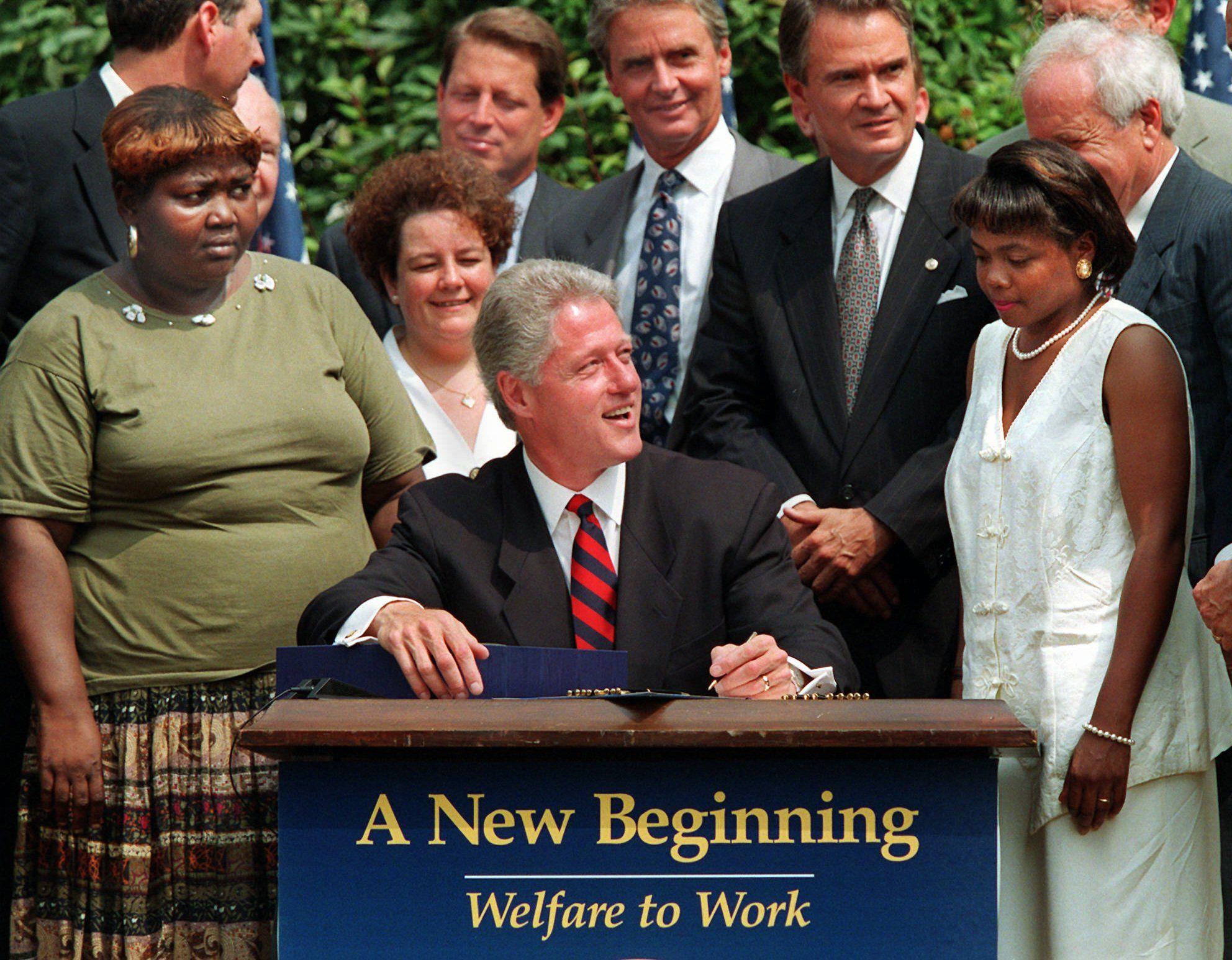Welfare and the Politics of Poverty | New York Times
Over the last few decades, no program has been examined more closely than public assistance whether in the form of welfare or SNAP/food stamps.
On August 22, 1996, President William Jefferson Clinton signed into law “The Personal Responsibility and Work Opportunity Reconciliation Act of 1996,” a comprehensive bipartisan welfare reform plan that dramatically change the nation’s welfare system into one that requires work in exchange for time-limited assistance.
President Clinton received severe criticism from community activists, women’s rights, social service advocacy, labor, minority, and religious groups for embracing this Republican-led effort to change the Aid to Families with Dependent Children (AFDC) program.
The law contains strong work requirements, a performance bonus to reward states for moving welfare recipients into jobs, state maintenance of effort requirements, comprehensive child support enforcement, and supports for families moving from welfare to work — including increased funding for child care and guaranteed medical coverage.
The video looks at the history of welfare reform and how these policies have helped and harmed families today.
The Personal Responsibility and Work Opportunity Reconciliation Act of 1996 (Welfare Reform)

